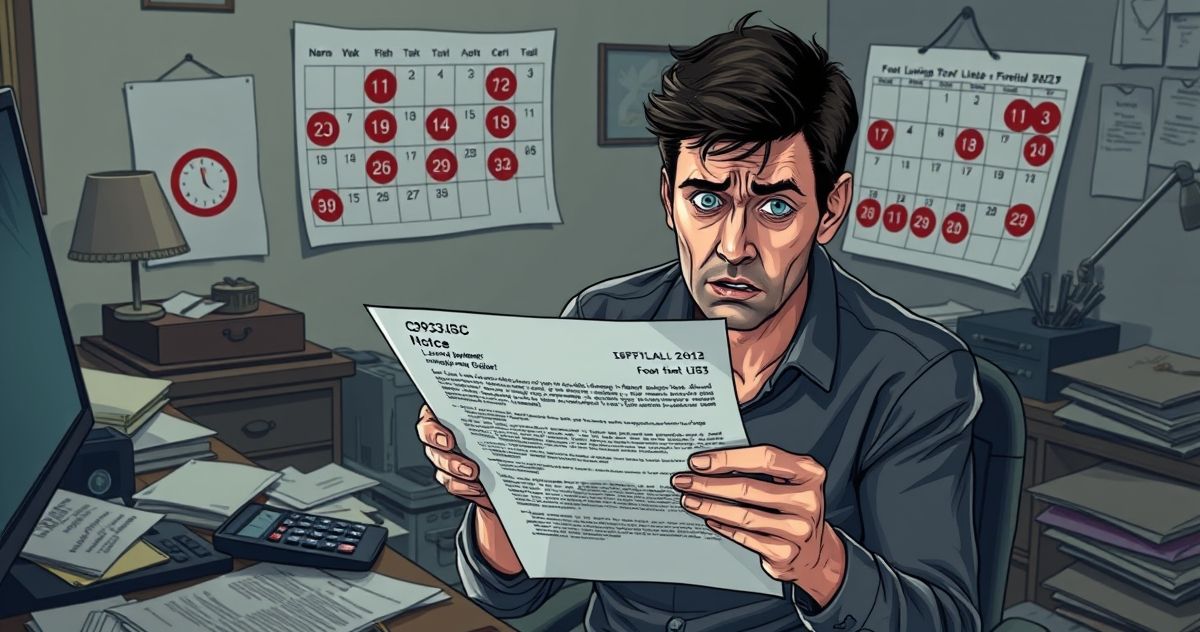CP523AC Notice: A Comprehensive Guide
The CP523AC Notice is an important communication from the Internal Revenue Service (IRS) that is sent to taxpayers to notify them about a default on their installment agreement. This notice serves as an official alert that a taxpayer’s scheduled payment plan has been disrupted, usually due to missed payments or other unfulfilled obligations. Understanding the intricacies of the CP523AC Notice is crucial for taxpayers seeking to maintain good standing with the IRS and avoid further financial penalties.
What is a CP523AC Notice and its Primary Purpose?
The CP523AC Notice primarily serves to inform taxpayers that their IRS installment agreement is in jeopardy due to non-compliance with the terms of the payment plan. Installment agreements are arrangements made with the IRS to pay tax debts over time, and maintaining this agreement requires adhering to a fixed payment schedule. If a taxpayer misses a payment or fails to meet other conditions, the CP523AC Notice is issued as the IRS’s way of communicating the default and its potential consequences.
Key Features of the CP523AC Notice
The CP523AC Notice typically contains several critical components:
- Reason for Default: The notice will specify the reason the installment agreement is in default, whether it’s due to missed payments, underpayment, or failure to comply with other terms of the agreement.
- Amount Owed: The notice will outline the total amount owed, including any additional penalties or interest that have accrued as a result of the default.
- Resolution Options: The CP523AC will provide instructions on how to remedy the default situation, such as making immediate payments or contacting the IRS to negotiate the terms.
- Consequences of Continued Default: The potential penalties for failing to resolve the default, such as the termination of the installment agreement, additional interest and penalties, and possible enforced collection actions, like levies or liens.
Relevant Filing or Compliance Requirements
To avoid receiving a CP523AC Notice, taxpayers must comply with several key requirements associated with their installment agreements. Primarily, this involves making timely payments as outlined in the agreed-upon schedule. Taxpayers must also remain current on all filing and payment obligations for future taxes, which means filing any required returns and paying all taxes that aren’t part of the agreement.
Another critical aspect is ensuring that any financial or payment information provided to the IRS remains accurate and up to date, as discrepancies could lead to perceived defaults.
Penalties or Consequences for Non-Compliance
Non-compliance resulting in a CP523AC Notice can have severe consequences for taxpayers. One immediate consequence is the potential termination of the installment agreement, which reinstates the requirement for the taxpayer to pay the total outstanding balance immediately. Additional penalties and interest typically accumulate, further increasing the overall debt.
Failing to address the default can result in enforced collection actions by the IRS, including wage garnishments, bank levies, or the placement of liens against property. These actions can significantly impact a taxpayer’s financial stability and creditworthiness.
The Importance of the CP523AC Notice in Tax Resolution
The CP523AC Notice is critical in tax resolution as it provides a structured opportunity for taxpayers to rectify their standing with the IRS before more severe actions are taken. By responding promptly to the notice, taxpayers can avoid the additional complexities and costs associated with escalated enforcement measures.
Receiving a CP523AC Notice should prompt taxpayers to re-evaluate their current financial situation and consider alternative resolution options if affording the installment payments is an ongoing issue. Options may include renegotiating the installment agreement, applying for a different type of tax relief, or seeking professional assistance to explore offers in compromise.
Ultimately, the significance of the CP523AC Notice lies in its role as an early notification system that allows taxpayers to prevent minor defaults from snowballing into significant financial challenges. Taxpayers who actively engage with the IRS upon receiving the notice stand the best chance of maintaining compliance and reducing their overall tax liability without incurring further penalties.
Conclusion
Understanding the CP523AC Notice is essential for taxpayers who are part of an installment agreement with the IRS. By recognizing the notice’s components, reasons for issuance, and the implications of default, taxpayers can navigate the complexities of IRS agreements with greater confidence. Addressing the issues head-on not only helps in resolving current defaults but also serves as a critical step in managing future tax obligations effectively and responsibly.

